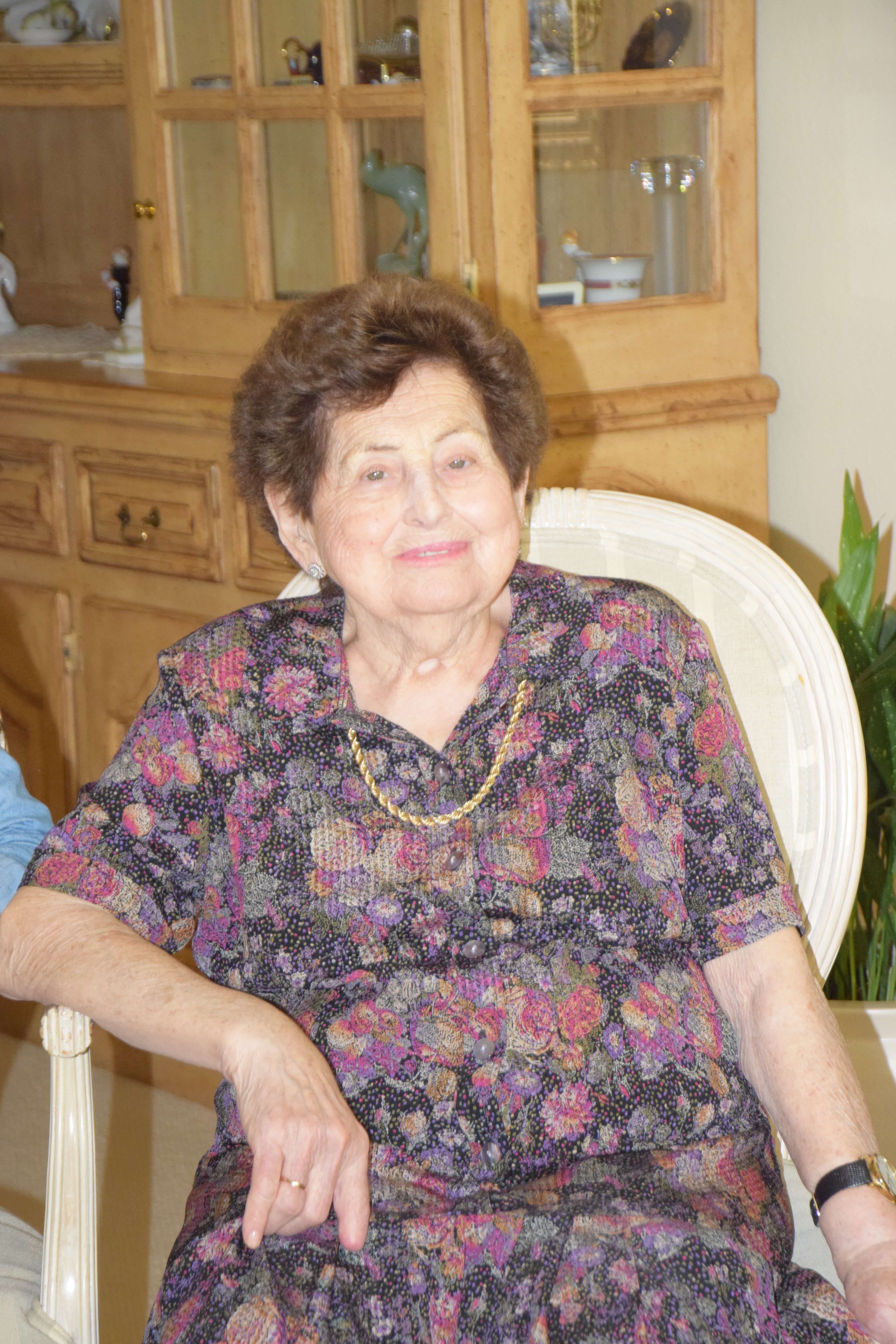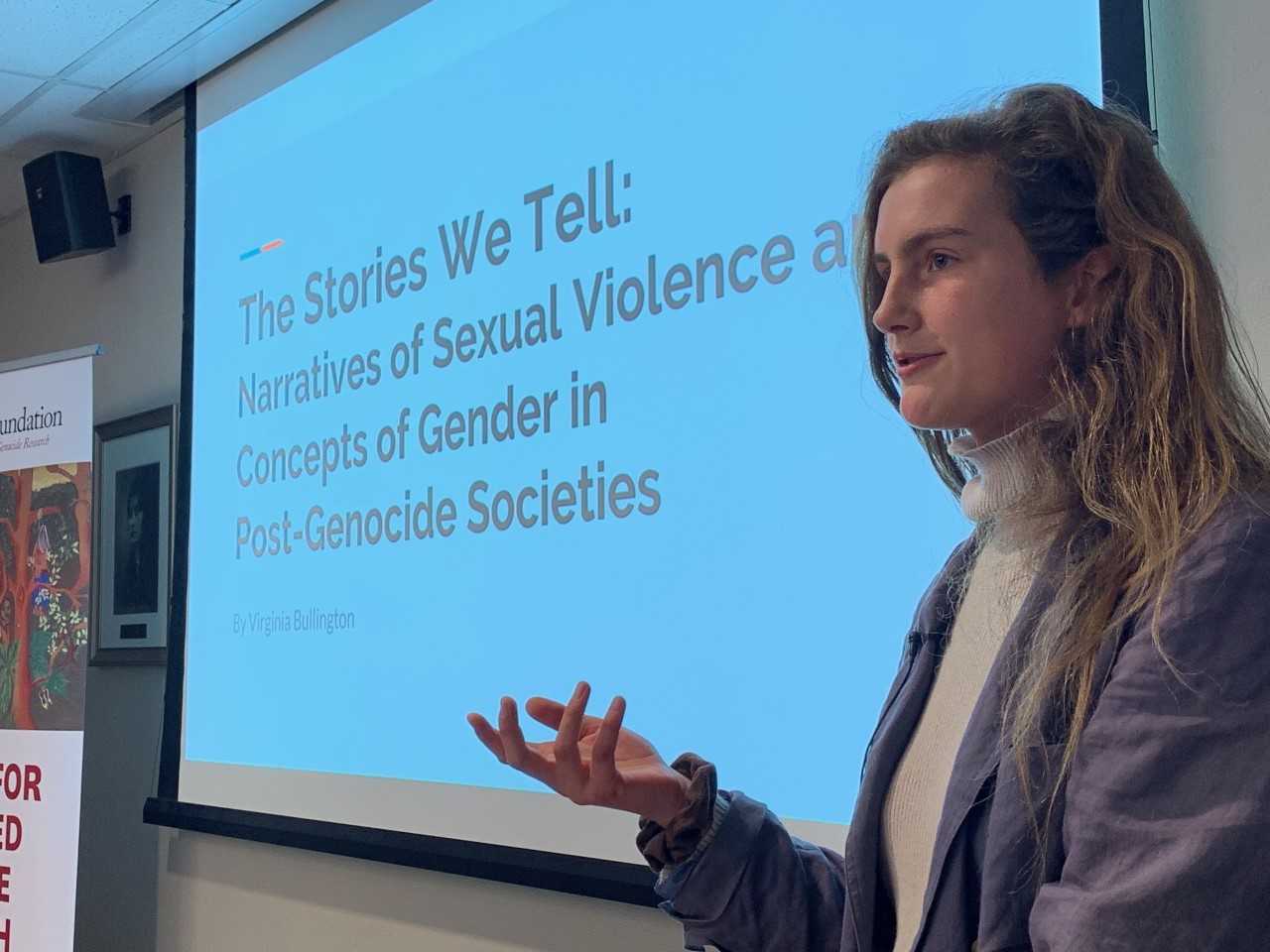All Current News Stories
Lecture: Women victims of sexual violence during ethnic genocides often thought of as ‘vessels for nationalism’
In her research of testimonies, USC student Virginia Bullington observed that women in the context of both the Armenian and Tutsi Rwanda genocides are often described as “bearers of culture, maternity and nationalism,” while in the Guatemalan context, “indigenous women were not essentialized -- they were erased.”
Read More
Lecture: Women victims of sexual violence during ethnic genocides often thought of as ‘vessels for nationalism’
In her research of testimonies, USC student Virginia Bullington observed that women in the context of both the Armenian and Tutsi Rwanda genocides are often described as “bearers of culture, maternity and nationalism,” while in the Guatemalan context, “indigenous women were not essentialized -- they were erased.”
Read More
Lecture: Women victims of sexual violence during ethnic genocides often thought of as ‘vessels for nationalism’
In her research of testimonies, USC student Virginia Bullington observed that women in the context of both the Armenian and Tutsi Rwanda genocides are often described as “bearers of culture, maternity and nationalism,” while in the Guatemalan context, “indigenous women were not essentialized -- they were erased.”
Read More
Lecture: Women victims of sexual violence during ethnic genocides often thought of as ‘vessels for nationalism’
In her research of testimonies, USC student Virginia Bullington observed that women in the context of both the Armenian and Tutsi Rwanda genocides are often described as “bearers of culture, maternity and nationalism,” while in the Guatemalan context, “indigenous women were not essentialized -- they were erased.”
Read More
Lecture: Women victims of sexual violence during ethnic genocides often thought of as ‘vessels for nationalism’
In her research of testimonies, USC student Virginia Bullington observed that women in the context of both the Armenian and Tutsi Rwanda genocides are often described as “bearers of culture, maternity and nationalism,” while in the Guatemalan context, “indigenous women were not essentialized -- they were erased.”
Read More
You can help us make a difference
Our programs power research, education, and public initiatives that preserve Holocaust memory and support new efforts to counter antisemitism.


